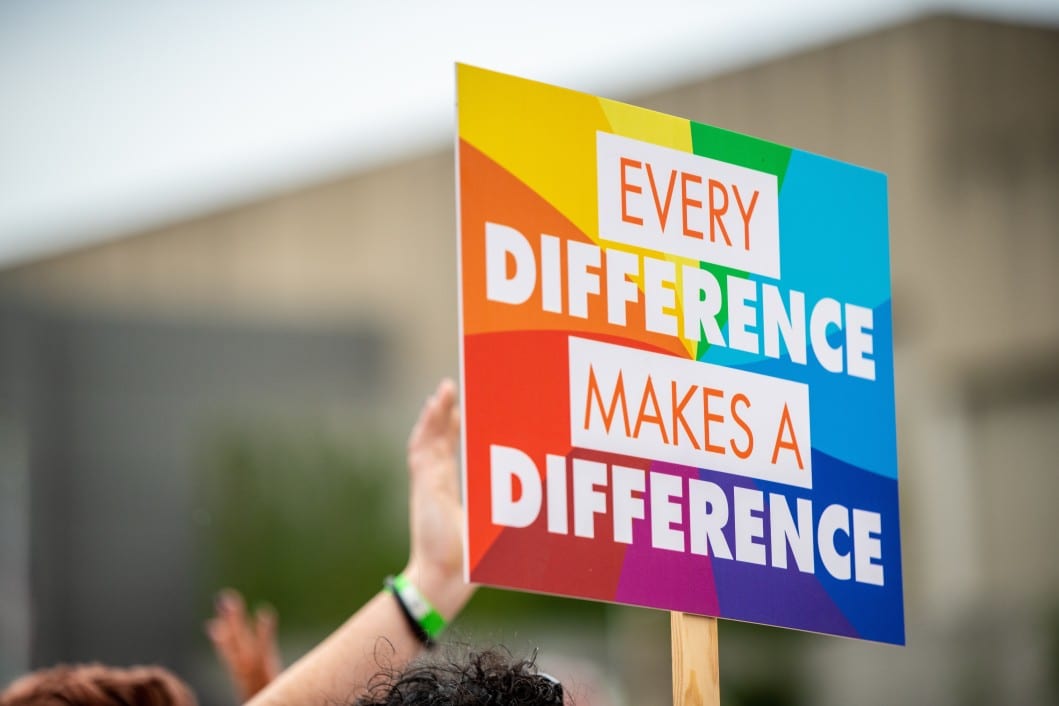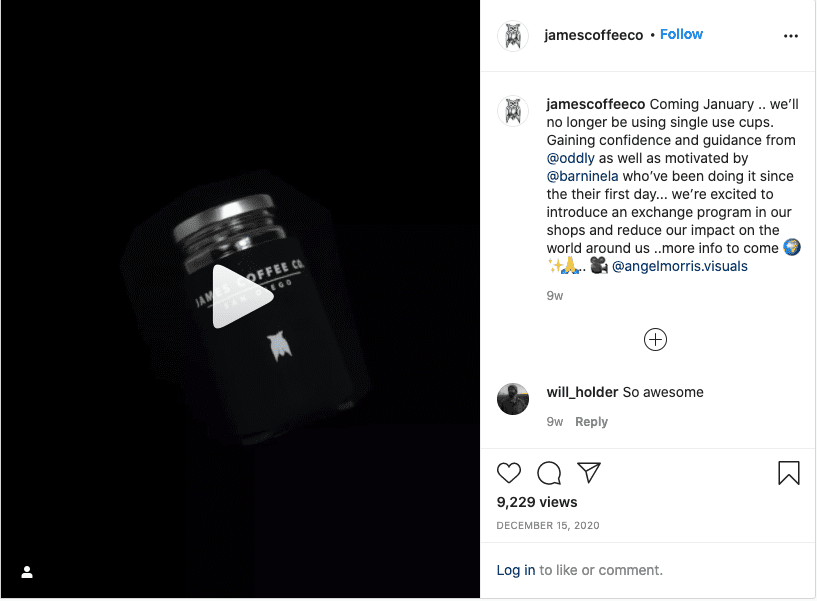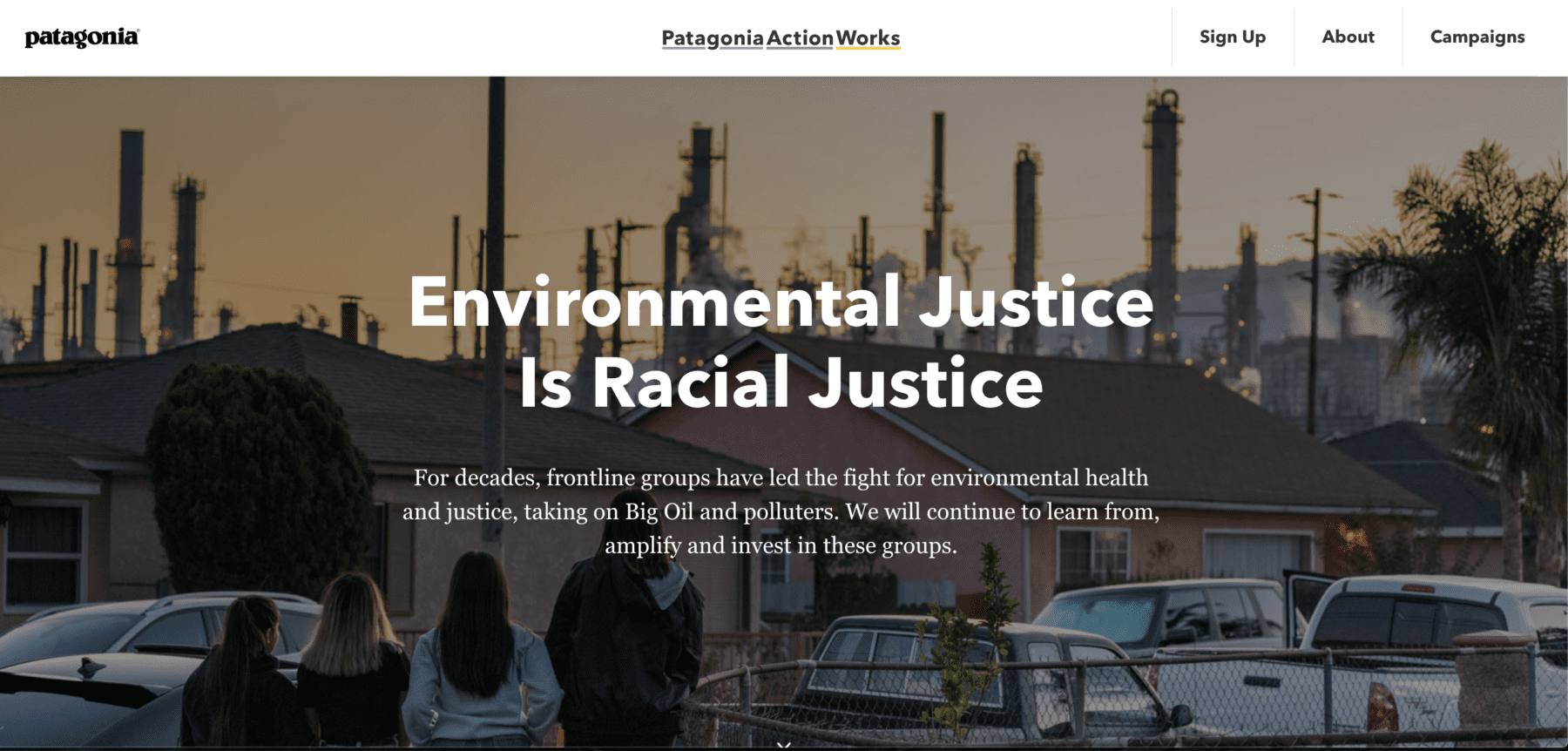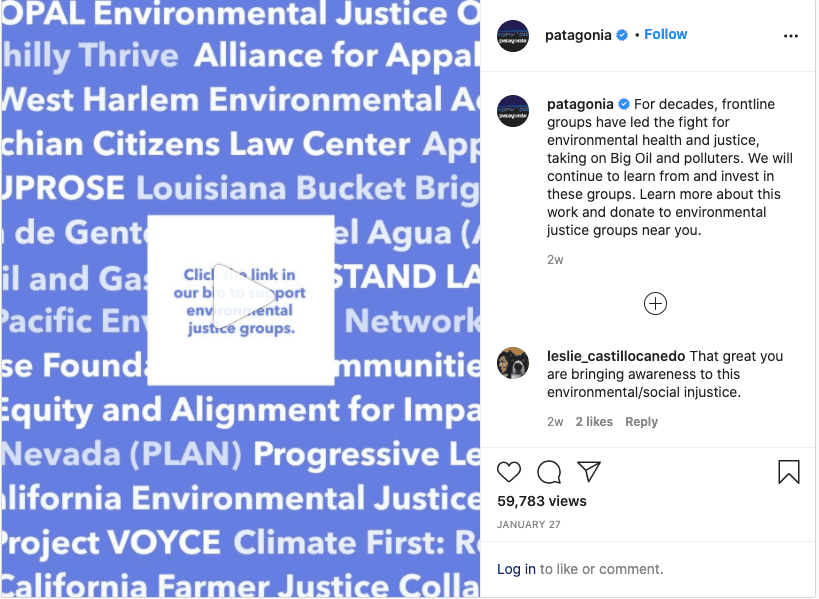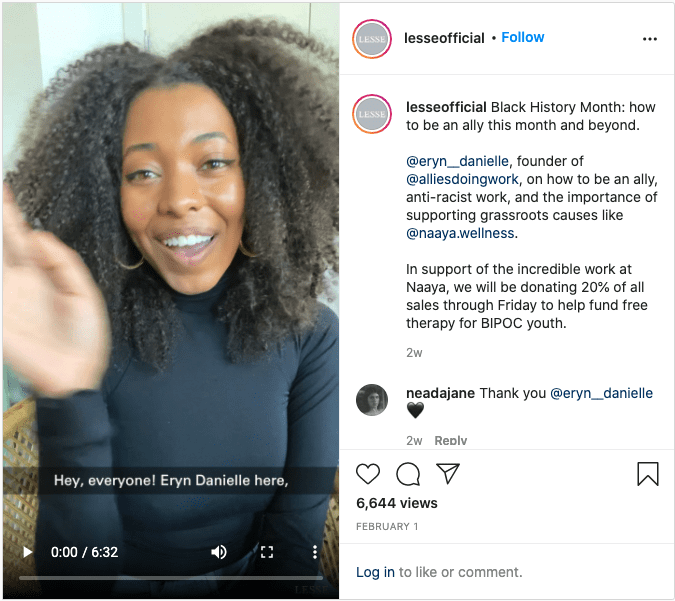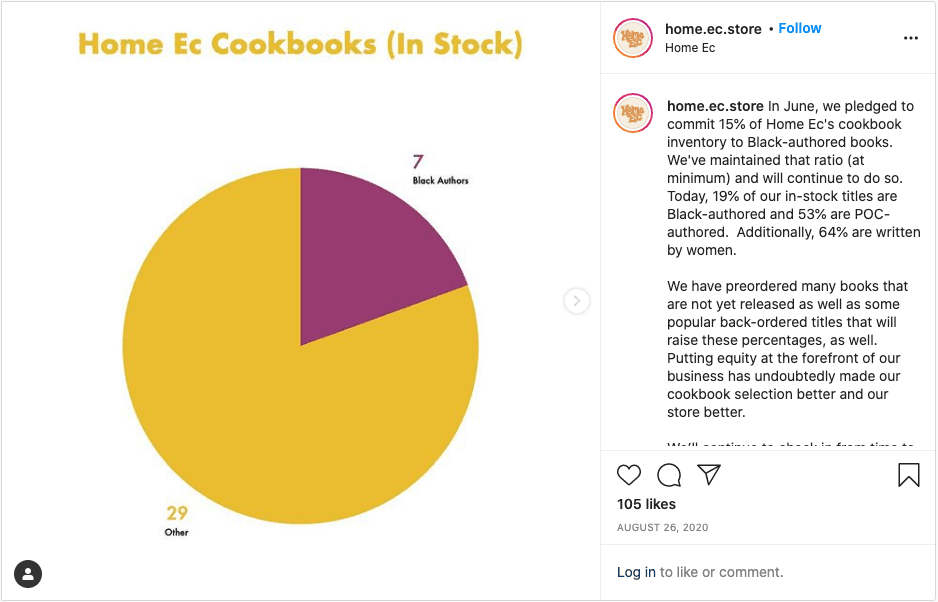Ethical marketing is the content you share about the intersection of your product or service and the impact it has or your business has in the world. It’s as much a digital marketing strategy as it is a philosophy.
At Wayward Kind, ethical marketing is at the heart of our digital media. Our work is rooted in creating positive social change and we partner with companies and organizations that are aligned with our purpose. Ethical marketing is not just about what you do or how you do it, it’s about the values that are the heart of your business and living those values.
Through ethical marketing practices, you are ensuring the customers that you are being honest and transparent about your product, your business, and your goals. This approach to marketing allows you to build trust and strong relationships with your consumers because you and they share a set of principles and ideas.
Here are 4 ideas of how to start your ethical marketing campaign today.
Show the work you’re putting in towards your social goals
What is your business currently working on to be a better environmental steward or more equitable? Or if you are new to social impact, make a list of the areas your business could improve upon in terms of social and environmental causes, and create actionable goals to implement those values. Make sure your goals are actionable, achievable, measurable, and time-bound.
From those goals, create content with your goals and where you are, what you need to do, and your timelines to implement your goals. Post on social media about your process, write a blog post or make a video about how you decided on your goals, write a guide, have an Instagram live on the reasons you wished to make a change and your commitments.
Check out this example. James Coffee Co. introduced at the beginning of 2021 their glass jar program. They replaced all of their single-use plastic cups and straws with glass jars.
In 2020 they sought to reduce the waste produced by their coffee shops, and the glass jar program was born. They created a cool video about it and wrote about how it works on their website.
Show your customers and audience that you are socially responsible through your actions, not just through your marketing. It’s fine to share what you’re working on and your learning process, but don’t do it as a marketing tactic.
Build a campaign around awareness
What is it about your issue of choice that matters? Educating people through an awareness campaign is a great way to get people involved and invested in your issue. It’s not about your company or your product, it is solely about the issue you are trying to educate people about.
Patagonia is one of the best in the business at awareness campaigns. Their audience is people who like to be outdoors. Those same people share a certain set of beliefs and ideas with Patagonia. Patagonia says this, “We’re in business to save our home planet.” They write and feature content about the various facets of both the harms our planet is facing and the solutions.
On their website and social media platforms are ways to get involved and extensive lists of organizations to donate to. When you engage with the brand on their platforms, you learn something, from the production process, to the recyclability of materials, to the environmental issues around outdoor recreation, to national policies conversations. Their brand’s content is geared to learn.
Another brand using and sharing its platform to educate is Lesse Skincare. Their Instagram page is full of content about social justice work, ways to get involved politically, and the sustainability of their products.
Share information on issues that align with your values. Your audience will have a chance to learn from you and grow with you. Moreover, sharing content about issues will cultivate brand trust because you are sharing parts of your values as a core part of your content.
You aren’t selling anything, certainly not your product, you are raising awareness for something that matters to you. You’re inviting people who are like-minded to come sit by the fire. At some point might you do business together? Sure. But that’s not the point. For ethical marketers, values alignment comes first.
You can raise money
Money is one of the most effective ways to implement change. Money allows for policy to be written, goods to be distributed, aid to reach the hands of people who need it, research to be conducted, and a continuation of work for a cause.
One idea is to collaborate with an organization, and raise money for their work. In February of 2021, for every subscription to Dan Pfeffier’s Message Box, the first month’s cost of the subscription will be donated to the organization Run for Something.
Another idea is to commit a certain percentage of your sales, monthly or annually, to donations to a cause you are invested in. During Pride Month in June 2020, Boy Smells created a whole line of candles for the month, and pledged 15% of proceeds from the PRIDE Collection from June-July, with a minimum donation of $26,500. The amount you pledge of sales should be what is feasible for your business.
So many of the causes we care about are having research done on them to better understand how to rectify them. You can raise money for research projects as well, or start your own.
In their work, Every Level Leadership kept seeing that Black womxn were not supported in workplace cultures. To understand why, they started Black Womxn Thriving the research project to “understand how Black womxn find joy, success, and stability at work; and how companies and organizations can recognize their responsibility to create a work environment where Black womxn thrive.”
If you are going to raise money for a cause, let your customers know that their purchase supports a cause. Profile the cause and market the campaign, and once the period of time is over for the donations, make sure you let people know how much was raised for the cause. Share the story of what the donation went to, maybe you can get the organization involved in telling that story.
Customers want to be involved in making changes and want to align their buying habits with their values.
Put your work on display
There are two ways to display the work you are doing for causes. One is to show the progress through data, and the other is through storytelling– who have you helped, what have you done.
A San Diego small business, Home-Ec, in June of 2020 pledged to commit at least 15% of their cookbook inventory to Black-authored books. They created an Instagram post about their pledge, and in August 2020, updated their followers that they had fulfilled their pledge and demonstrated their demographics of cookbook authors through graphs.
The founder is creating a culture of transparency and honesty in her business by saying here is where Home-Ec is and here’s where she wants Home-Ec to be. Once she reached her commitment, she displayed it so people knew that she had kept her word.
If the work you are doing directly impacts people, share their stories, garner testimonials to distribute or feature on your platforms. People resonate with stories, so storytelling can be an effective way to bring people into the work you are doing. Maybe your work doesn’t have a direct impact on peoples’ lives but there are people doing incredible work for a cause or issue you care about, those are the stories you can share on your platform.
Every Friday on Instagram Ellevest, a financial institution for women by women, does #FinancialFeministFridays where they feature women who are making strides in systems that are dominated by a history and presence of patriarchy.
One Friday they featured the story of the U.S. Women’s Hockey team’s fight for equal pay to the men’s team. Another Friday they featured the story of Kima Jones, the founder of Jack Jones Literary Arts — a book publicity company promoting stories written by black women and women of color. Both of these stories are a different facet of creating financial equity for women.
Another way they share their platform is through the hashtag, #ElleRaisersSpotlight, where they tell the story of women in business that are breaking glass ceilings.
Here at Wayward Kind one of our core values is liberation. We actively seek out ways to use our platform as a tool for liberation. Our content features clients, collaborators, and partners who share this belief and are working in their sectors on envisioning and creating a more just world. We do work for real people, who work for real people on real issues. Their stories need to be told, and we use our platform for just that.
Stories boost our trust and confidence, they motivate us to do something, they provide a window into what could be or what should be, allowing us to see ourselves in the work. The stories you tell will be an extension of your brand’s story.
Get started!
There are dos and don’ts to ethical marketing. Do be transparent and honest. Don’t lie or exaggerate. Don’t commit to values-based work because it’s a good marketing idea. Do work on issues that align with your core values. Don’t be fraudulent or disingenuous. There is so much power and force for good when businesses commit themselves to causes.
Wayward Kind is a digital marketing agency focused on having digital conversations that matter. Our sweet spot is working with challenger brands who are making a significant impact in race, class, and gender equity and want to develop stronger relationships with their clients.
Want to create meaningful content and market what you care about? Let’s chat.



